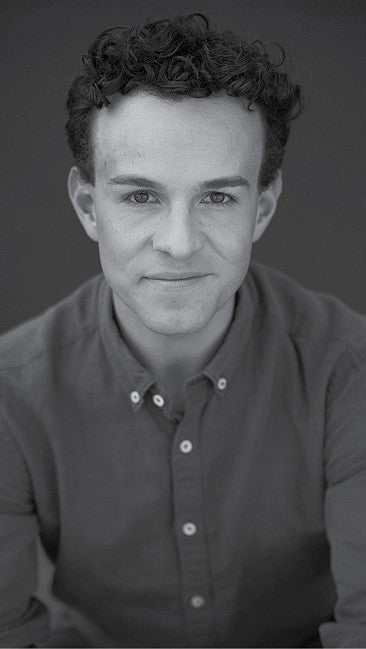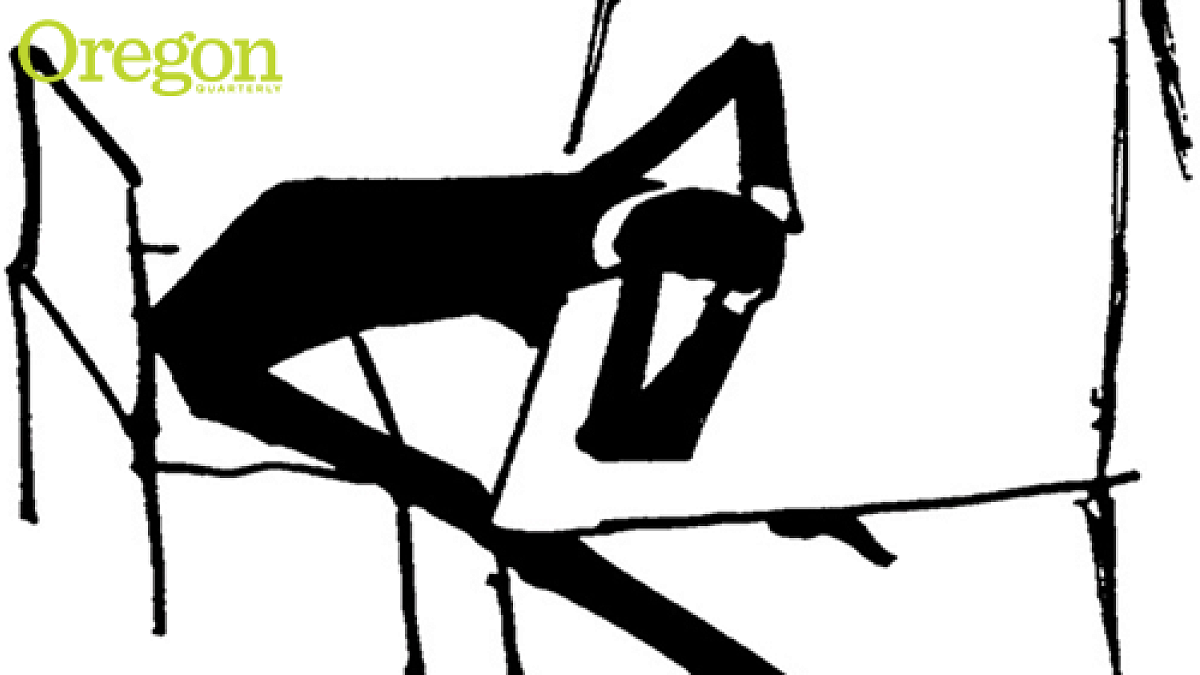Alex Mentzel was studying in Germany in 2016 when a glitch with visas left him unsure of his ability to remain in the country.
As he looked around the visa bureau in Stuttgart, Mentzel felt privileged to be a white, financially secure male, fluent in English and German. He couldn’t shake the thought of how much harder it would have been to navigate the confusion and stress of the experience without the same resources or knowledge or skin color—while also trying to escape hardship or persecution.
His immigration-like experience, based on his observations about what parallel human experiences might look like, provides the inspiration for his senior honors thesis.

Kafka’s story follows the abrupt arrest of a bank officer who must defend himself against an unknown charge without much help or information; the novel is read as commentary on bureaucracy, totalitarianism, and the loss of individual freedoms. Mentzel explores similar themes by imagining an undocumented immigrant as the main character, navigating the modern immigration system.
Mentzel will also stage and direct a performance of his adaptation in Eugene this winter, inspired by the theatrical methods of Bertolt Brecht. The late German theater practitioner was known for innovative performance techniques such as breaking the “fourth wall” between the actors and the audience to spur conversations about social and political goals.
“The UO helped me realize how to use the humanities to cut into the fundamental questions and problems of our time,” Mentzel says. “My thesis project aims to do this with the immigration system, which has been plagued for years by deep-seated structural imbalances of power that threaten human rights, and the dehumanizing border enforcement efforts that have increased in the last two years.”
Mentzel draws from his liberal-arts education and wide-ranging research sources for the project.
He turned to German philosopher Hannah Arendt for the ethical underpinnings and political framework of human rights and immigration. He leveraged his lessons from a six-month fellowship in Germany, where he studied Brechtian technique with theater professor Nikolaus Müller-Schöll at Goethe University Frankfurt and immersed himself in Europe’s robust theater scene. And he pored over policy briefs and contemporary news reports of issues with the immigration system in the US.
Mentzel is also pulling from his rich background in acting and theater for the project. While at the UO, he has appeared in local and university productions, as well as episodes of TV shows Glee and Grimm, and he continues to fly around the world for auditions. Earlier this year, Mentzel was the convocation student speaker at the welcoming ceremony for the class of 2022.
For his production of The Trial, Mentzel also serves as director, yet another element that he’s carefully considering under the umbrella of the project. The director is an inherently authoritarian figure, he says—how does one reconcile that traditional relationship in a play meant to provoke conversations about political powerlessness? In his paper, Mentzel will probe that question in a chapter about his creative process and execution.
“I hope my thesis project will activate an awareness of human rights and speak to a human experience,” Mentzel says. “It is hard to imagine any person more in need of their inalienable rights than those fleeing war, poverty, violence, oppression, persecution, and economic hardship.”
—By Emily Halnon, University Communications


